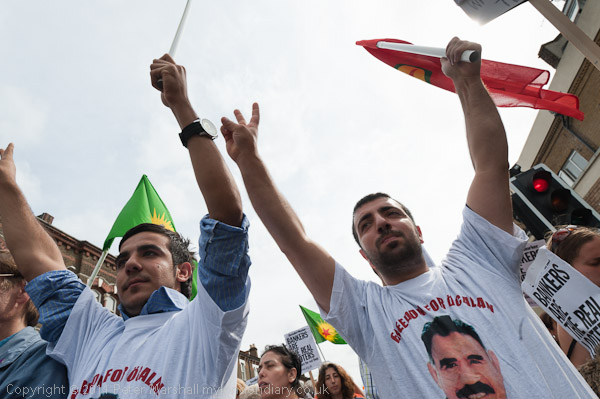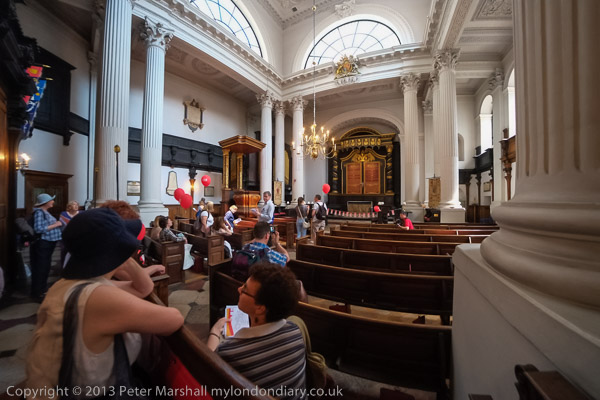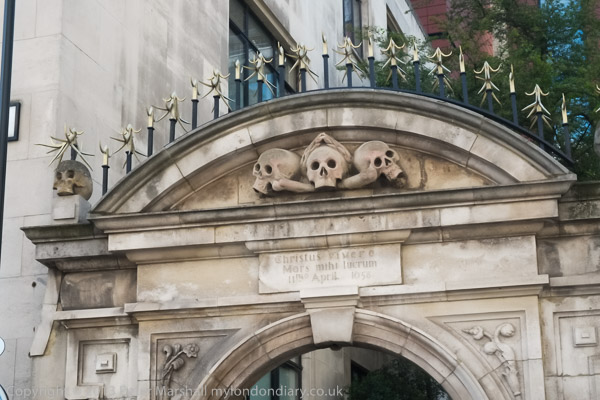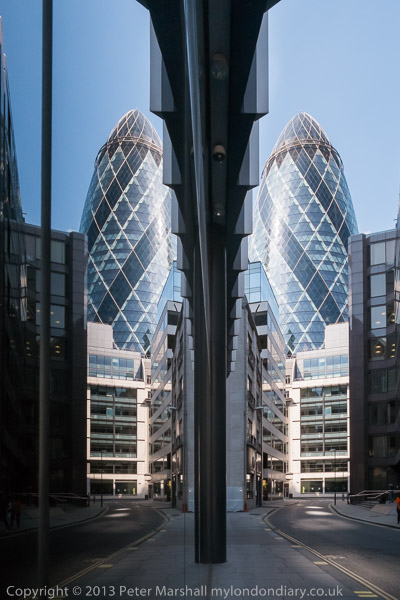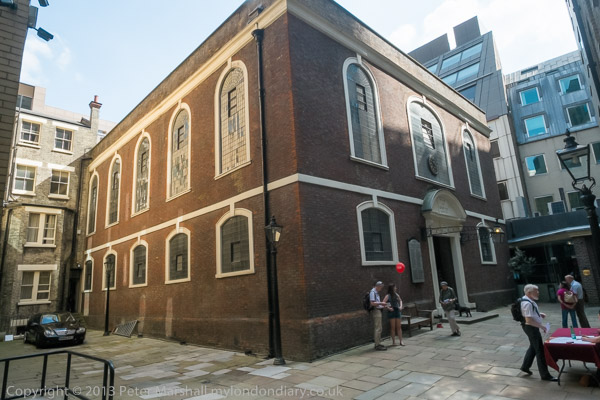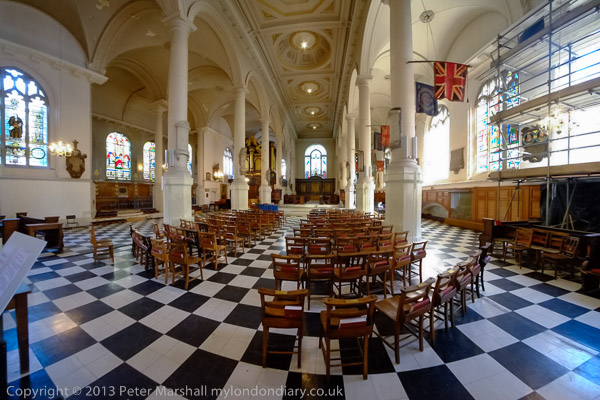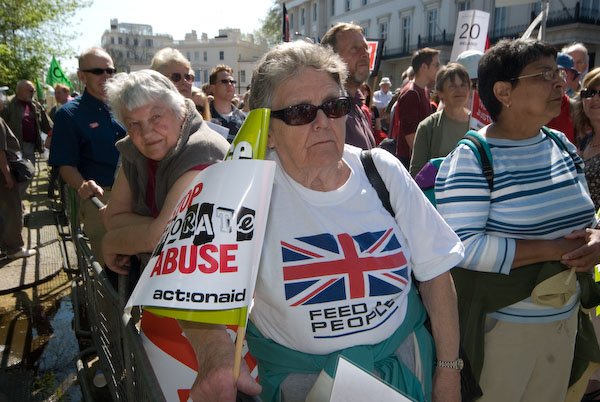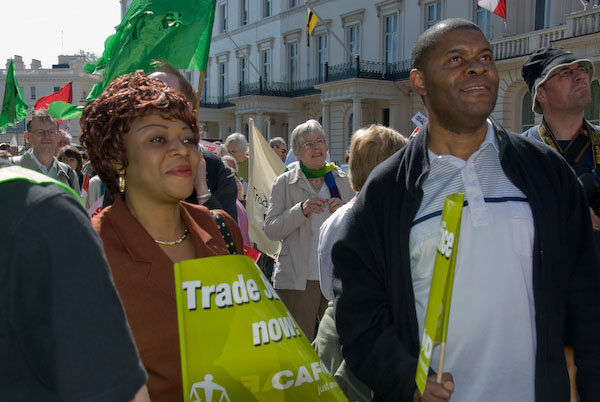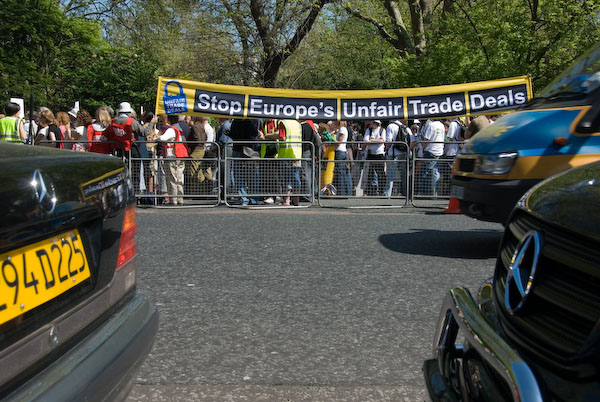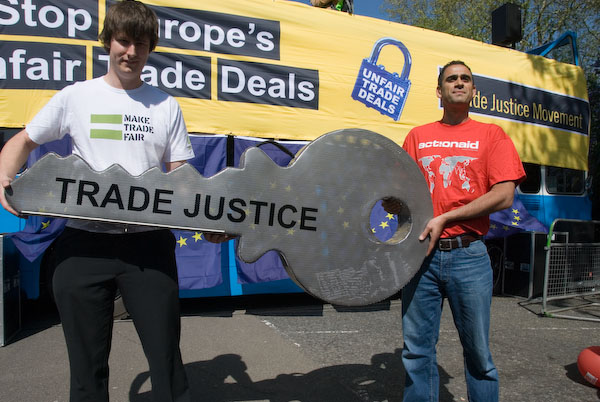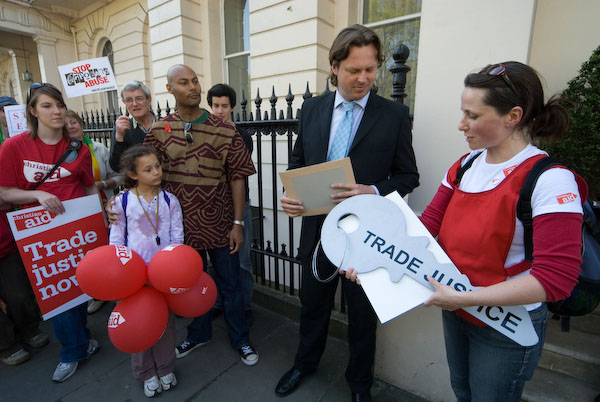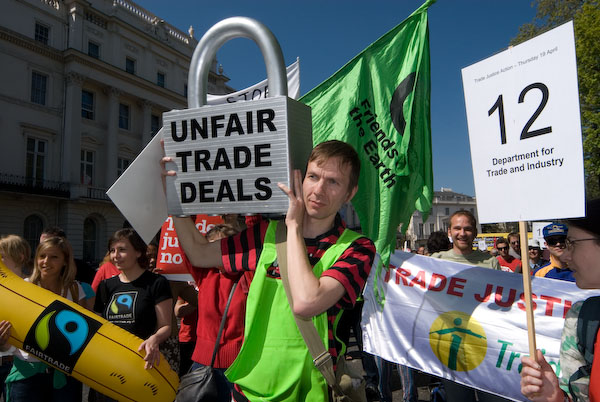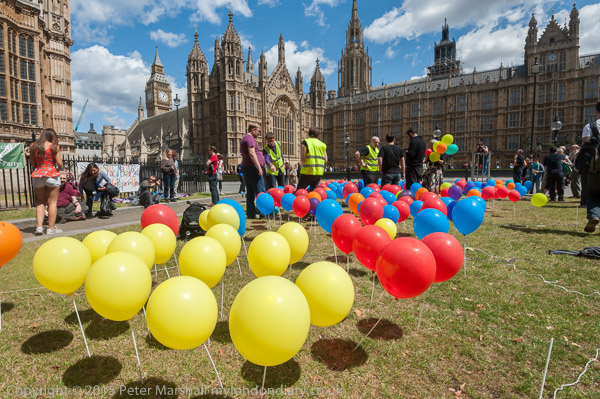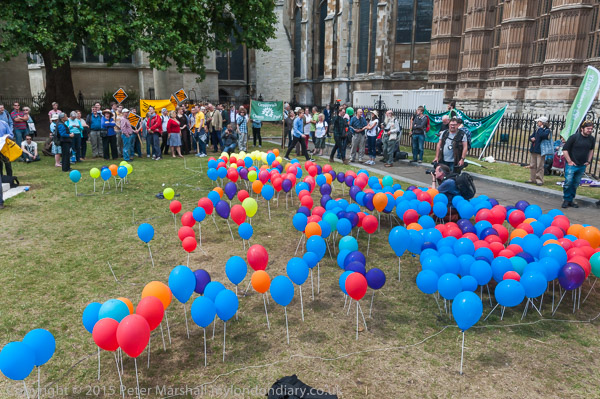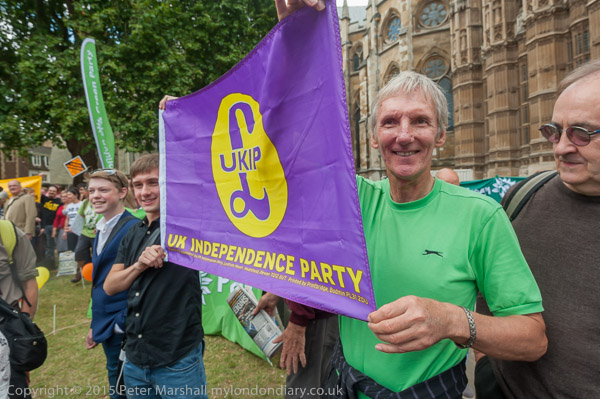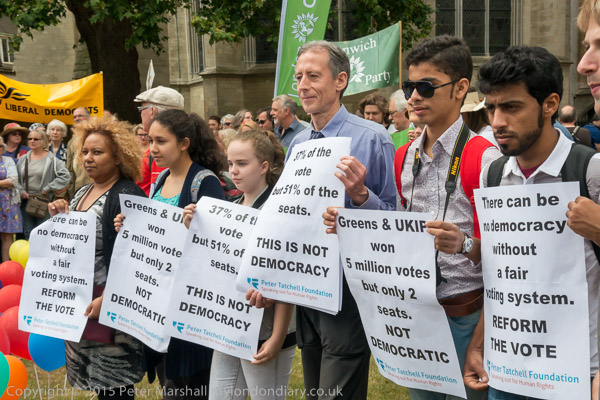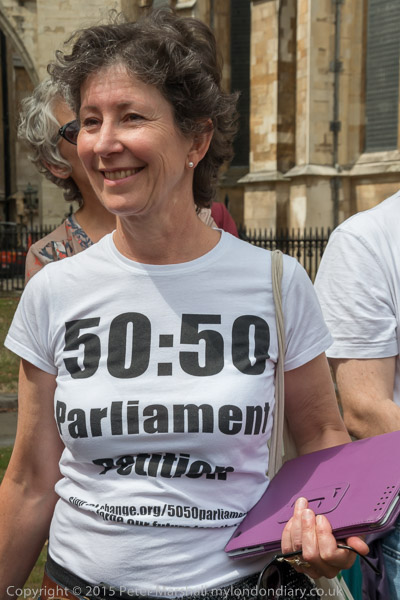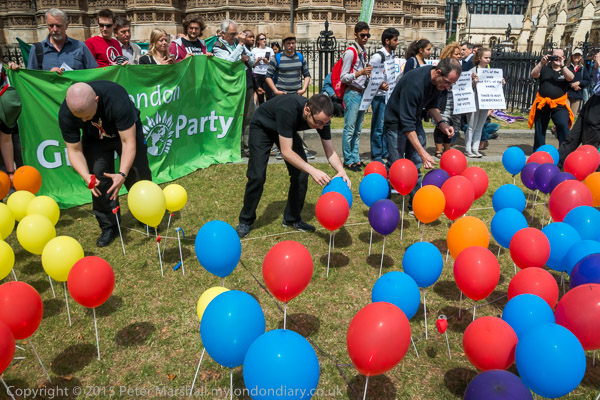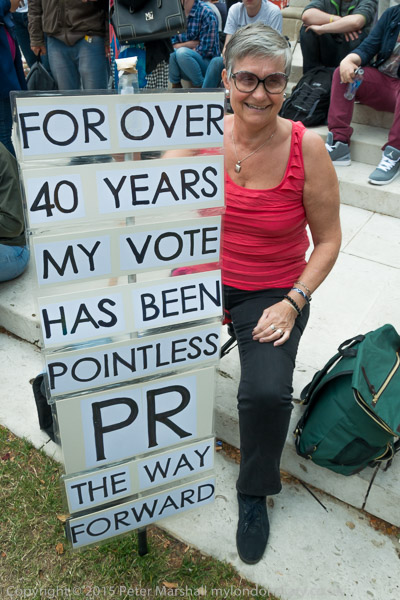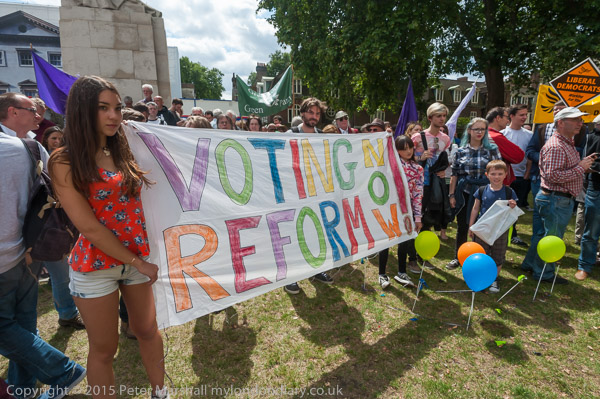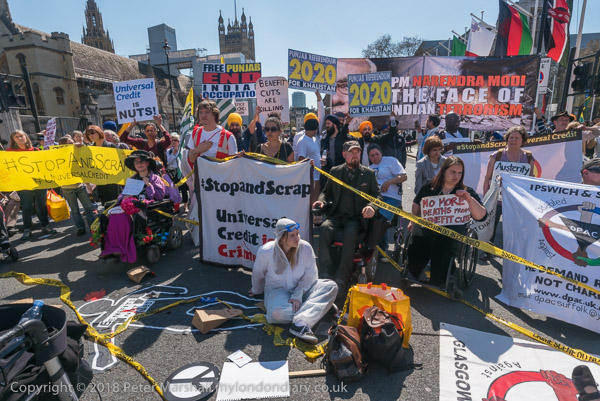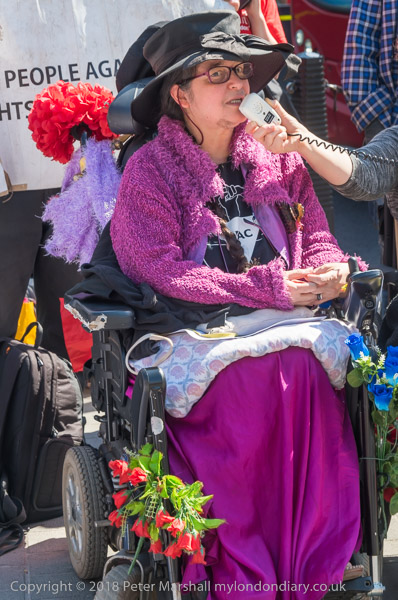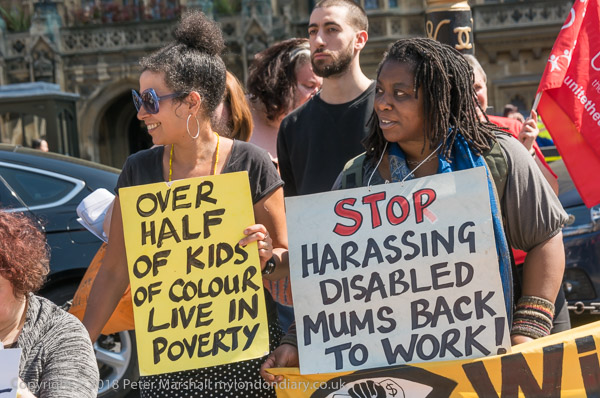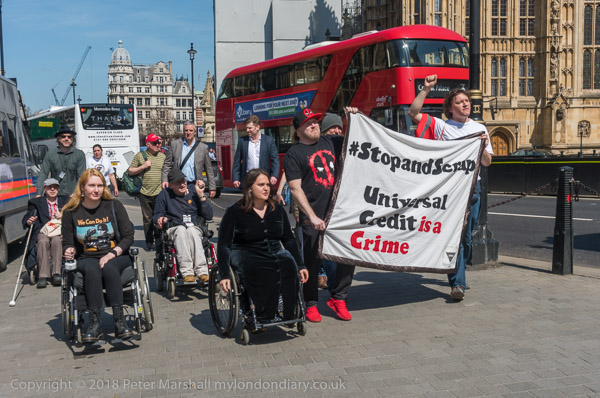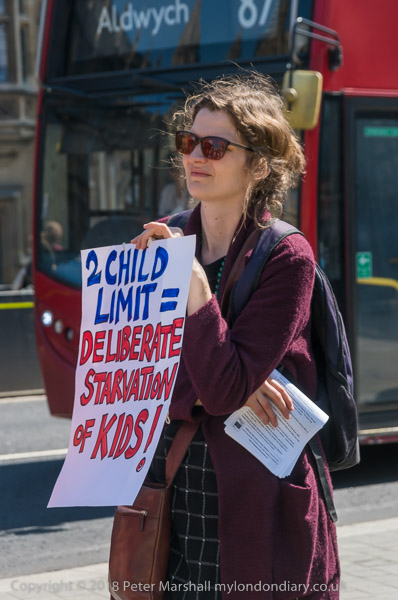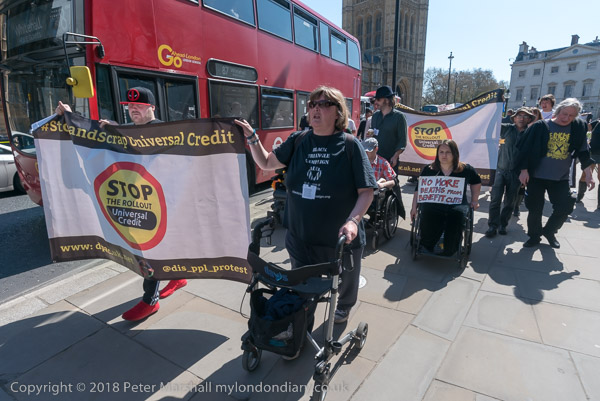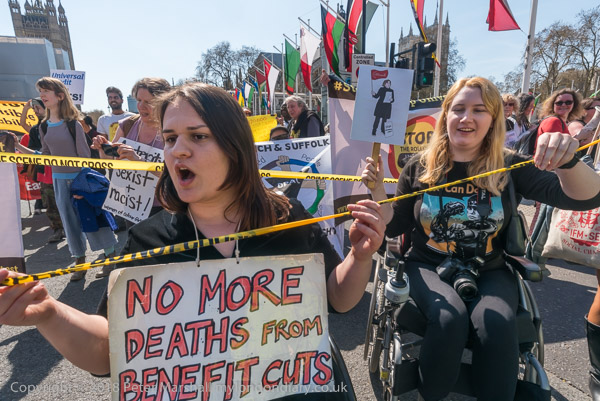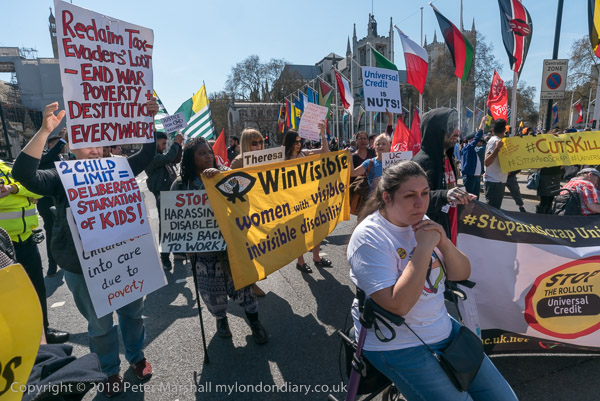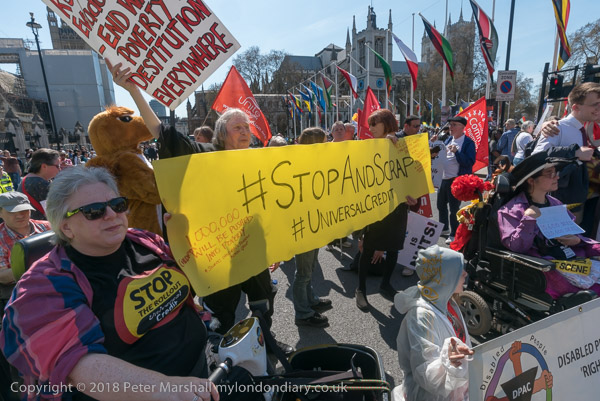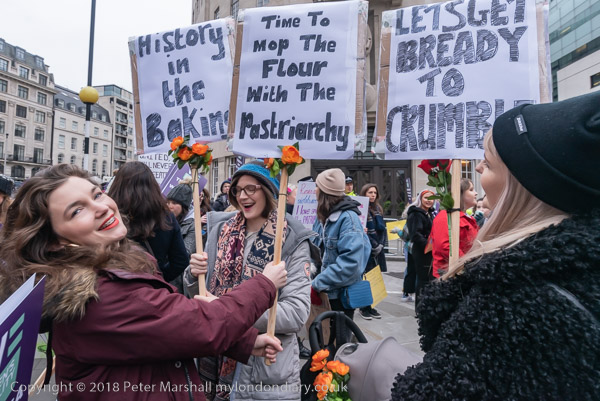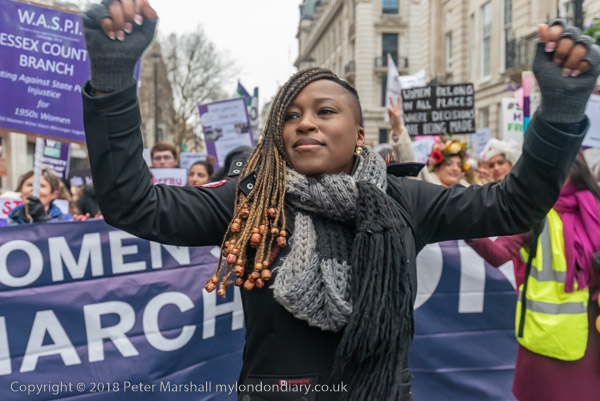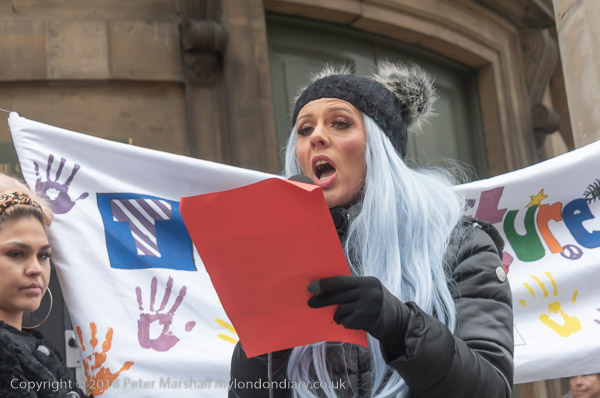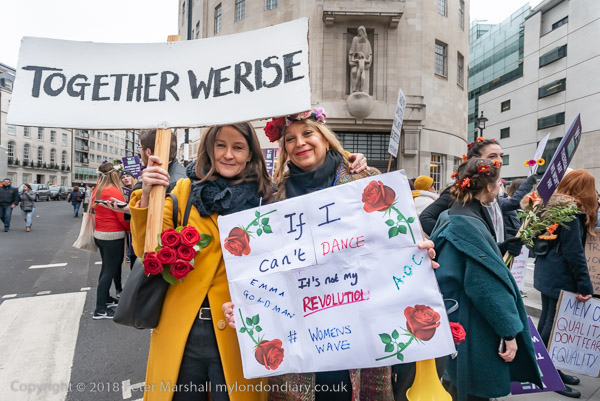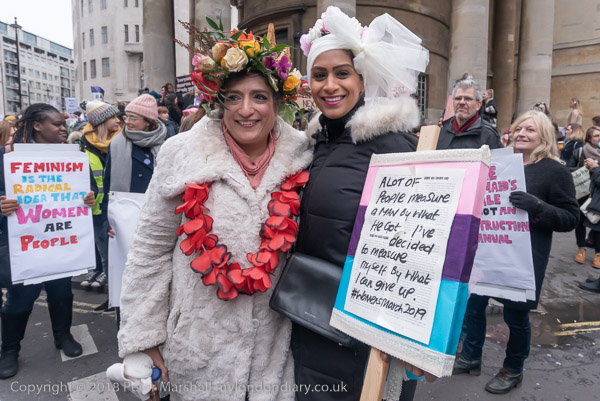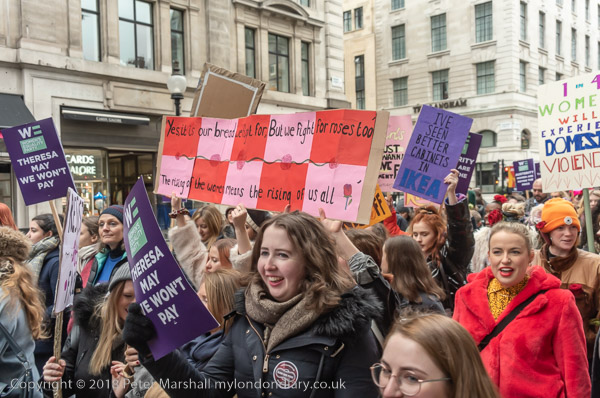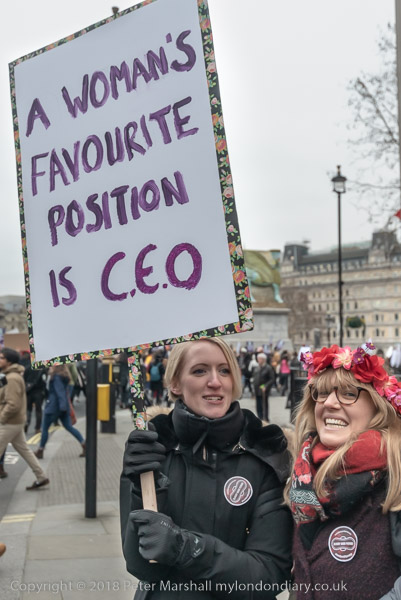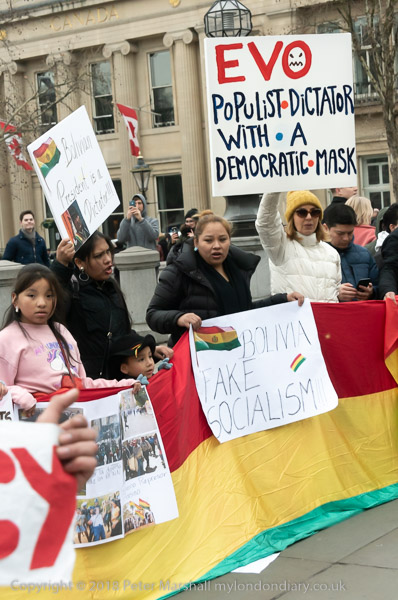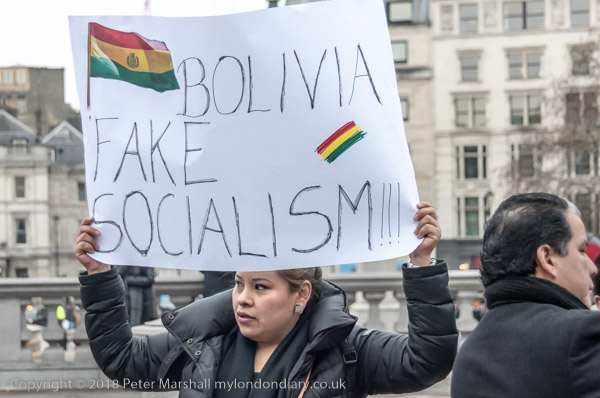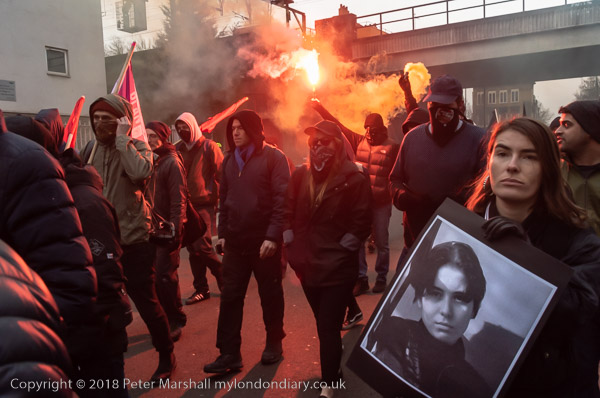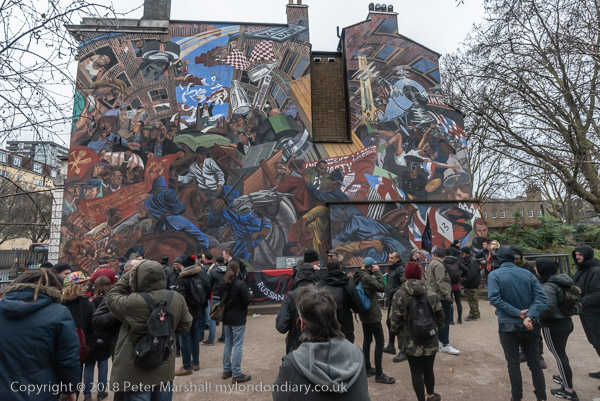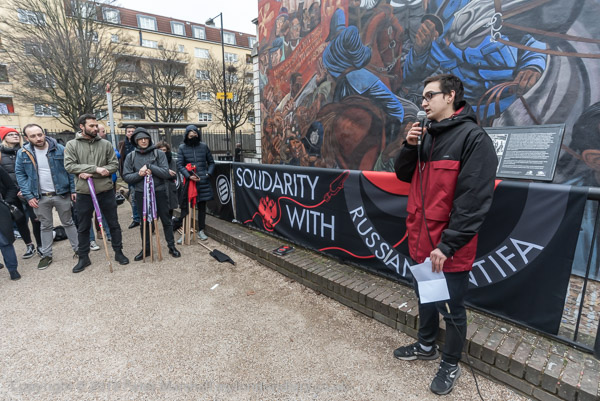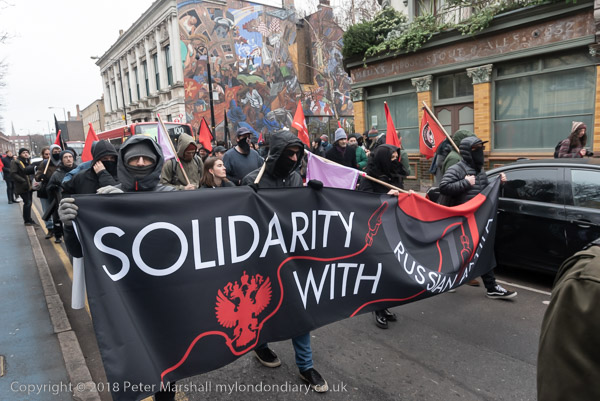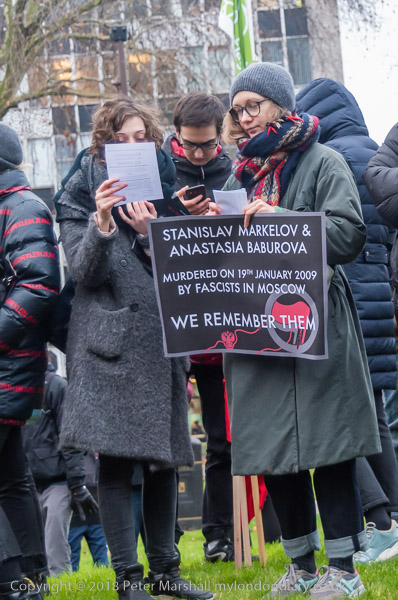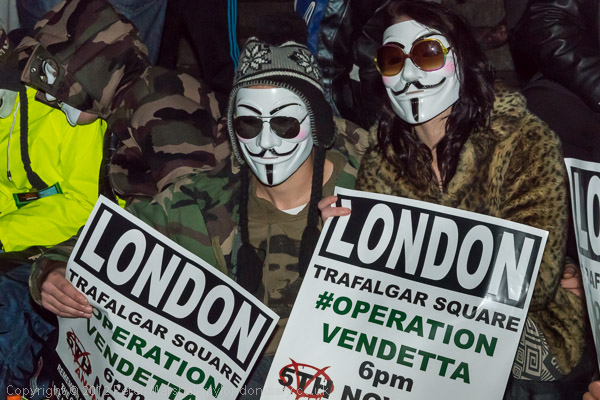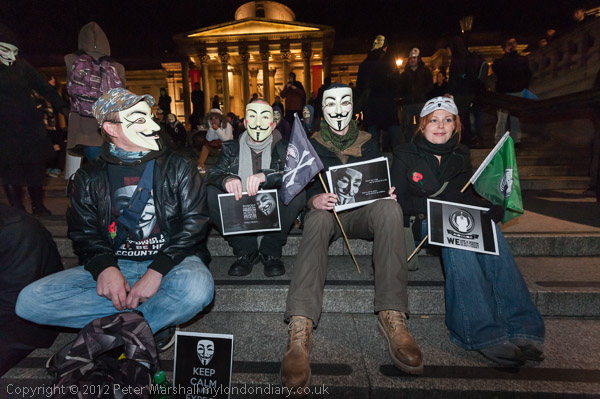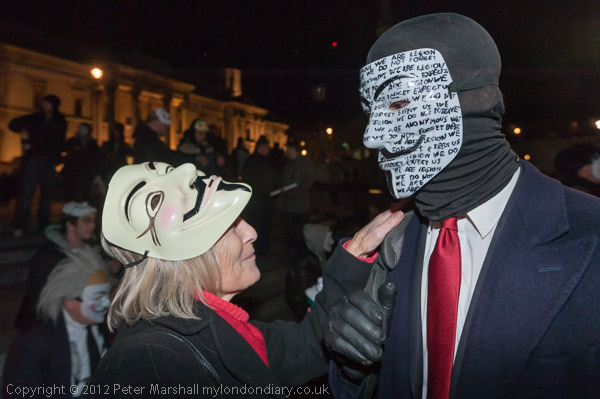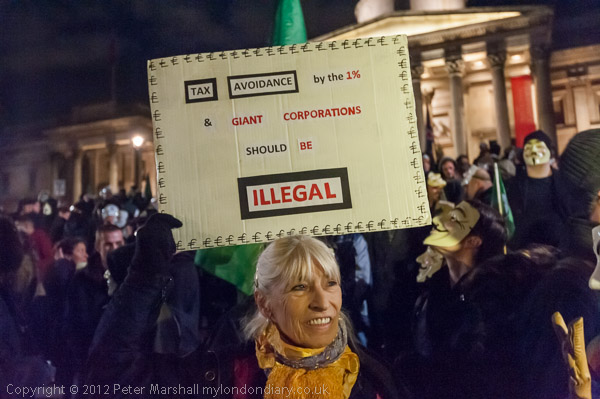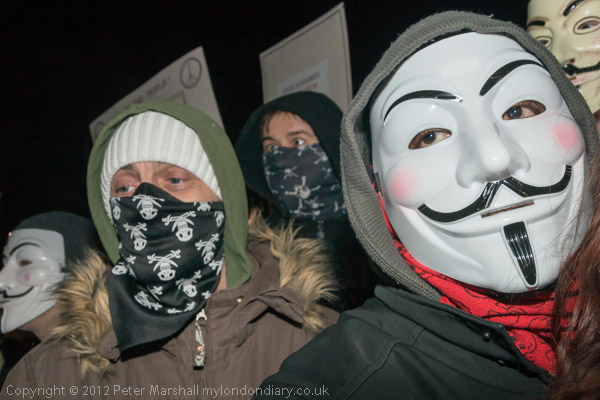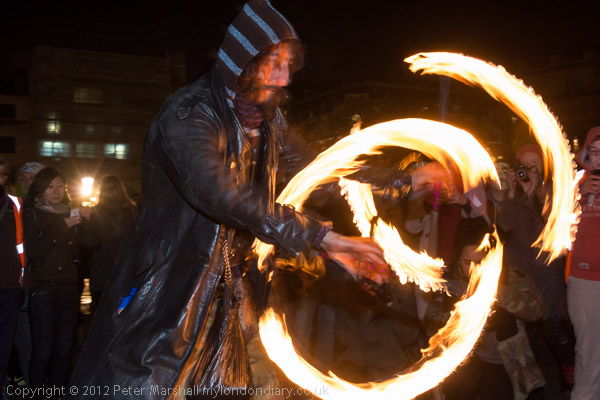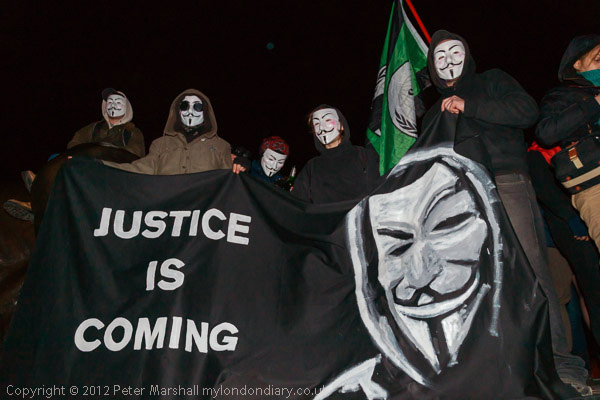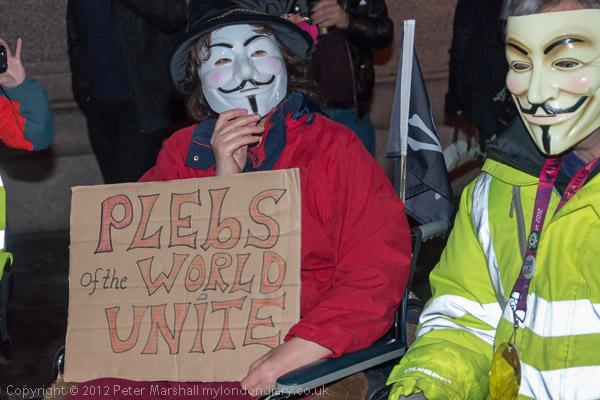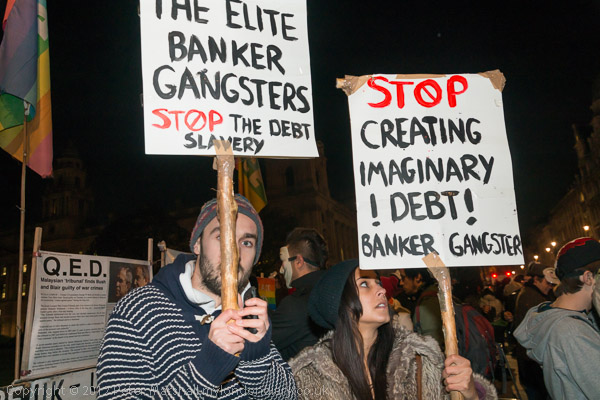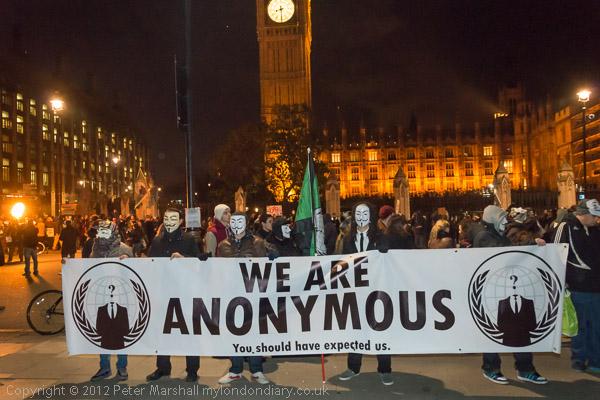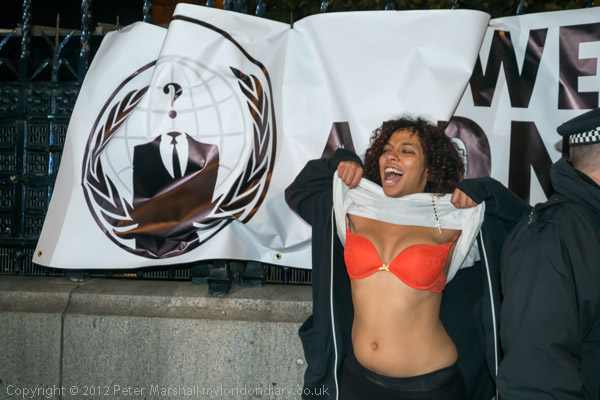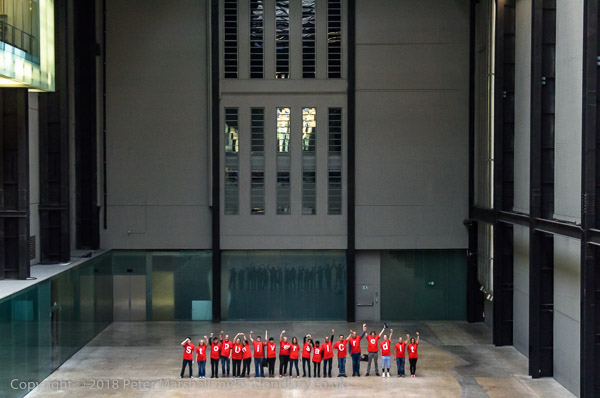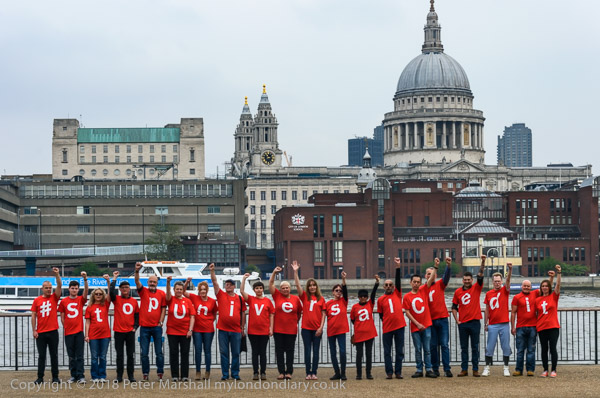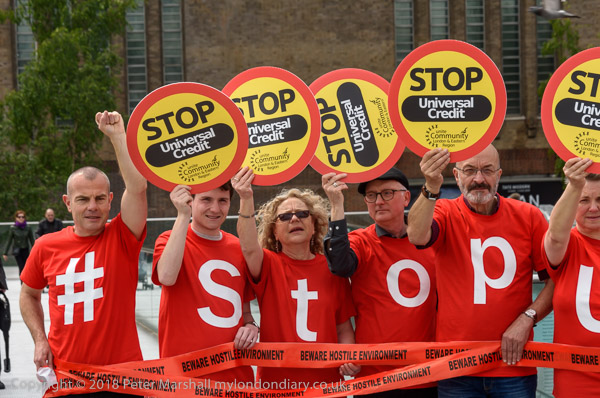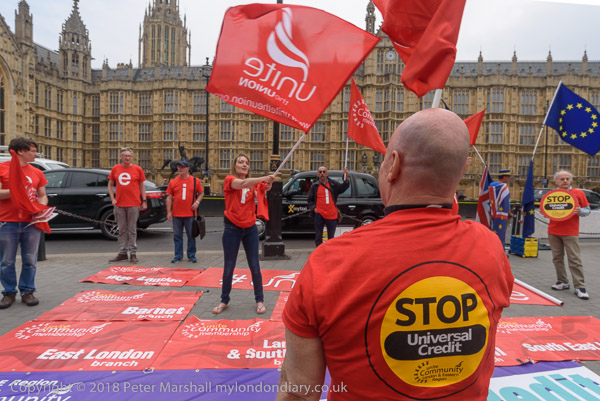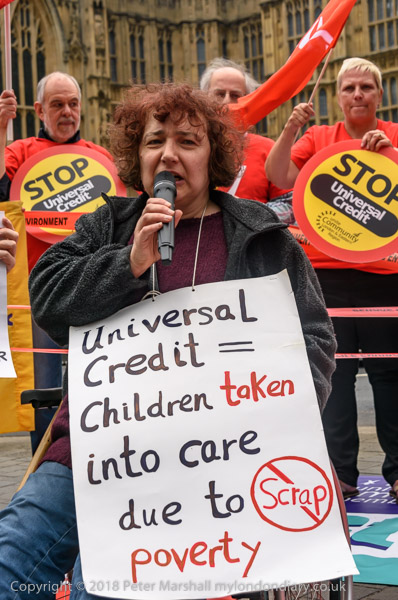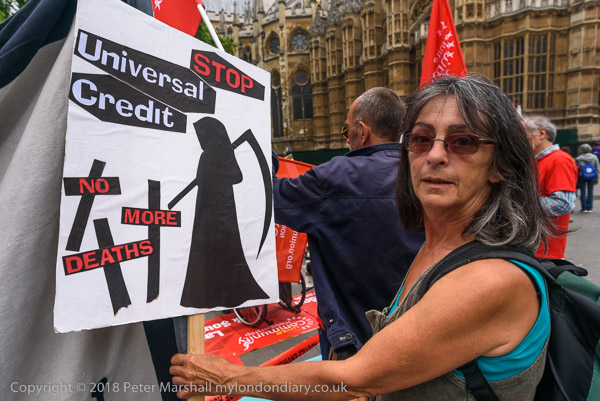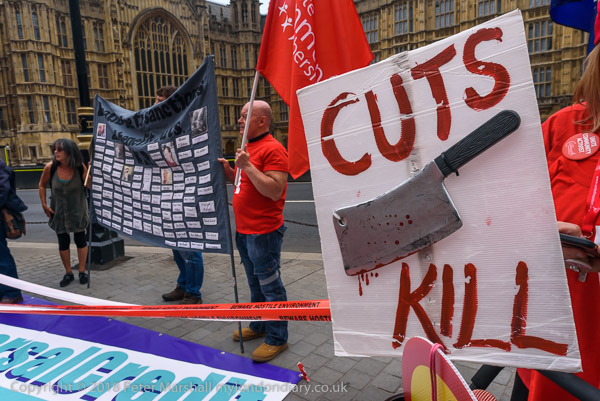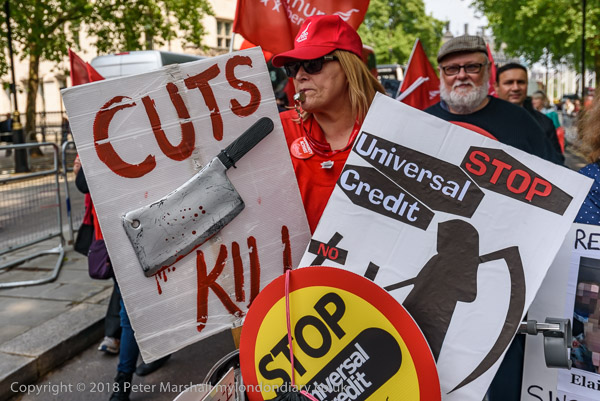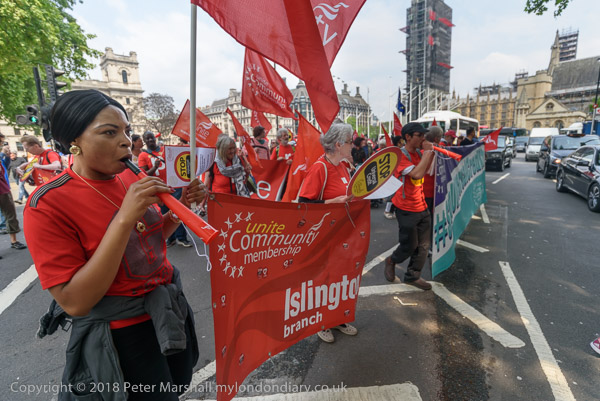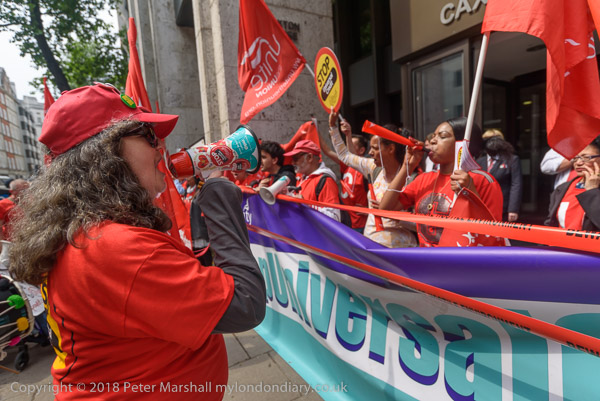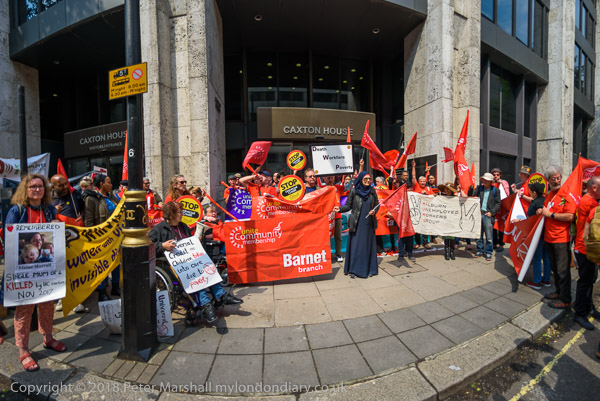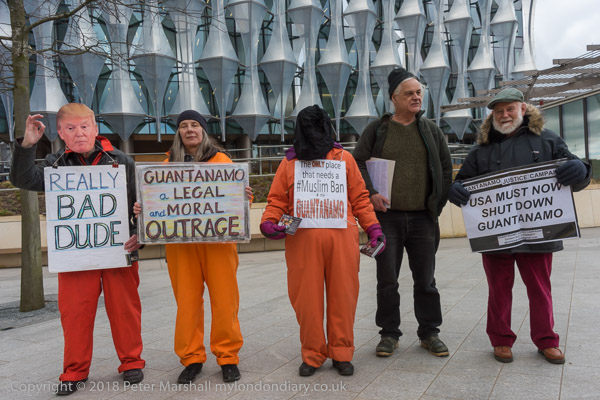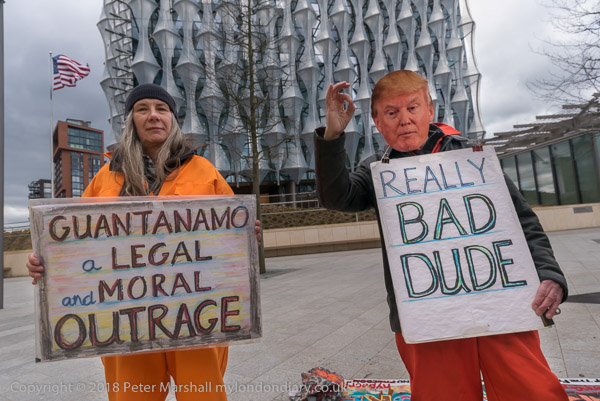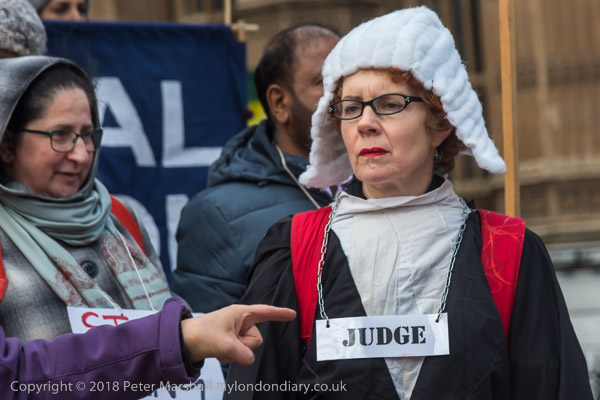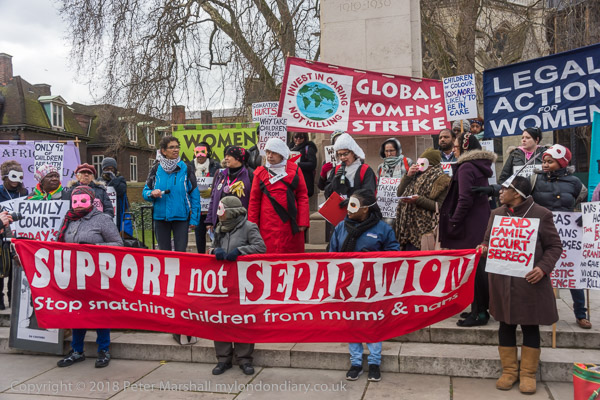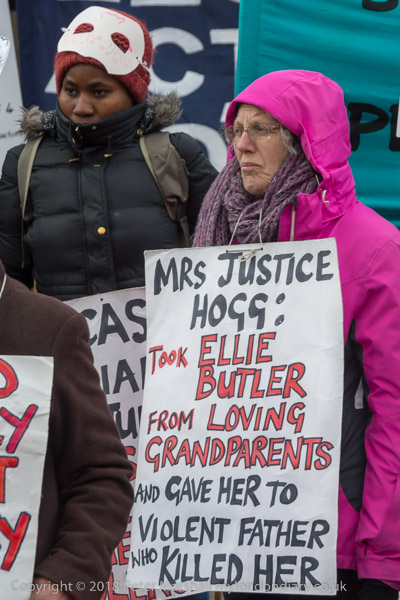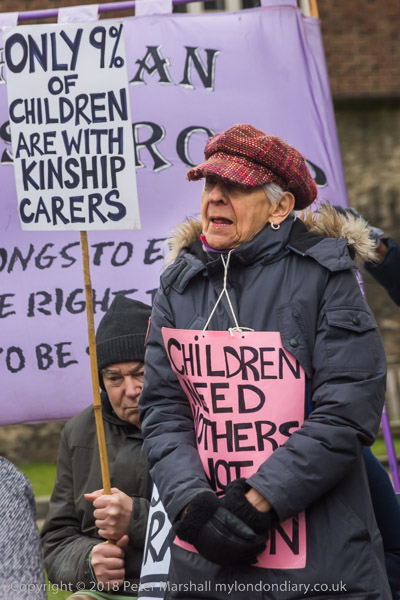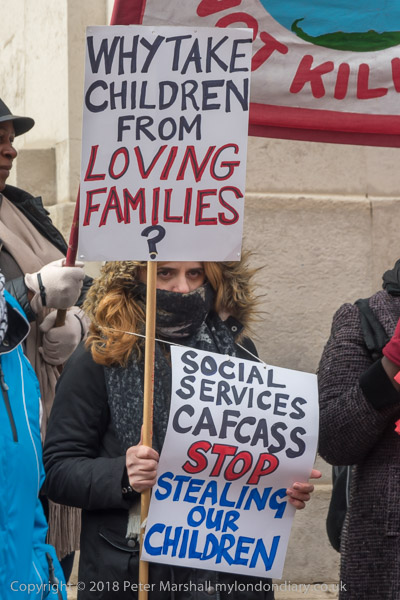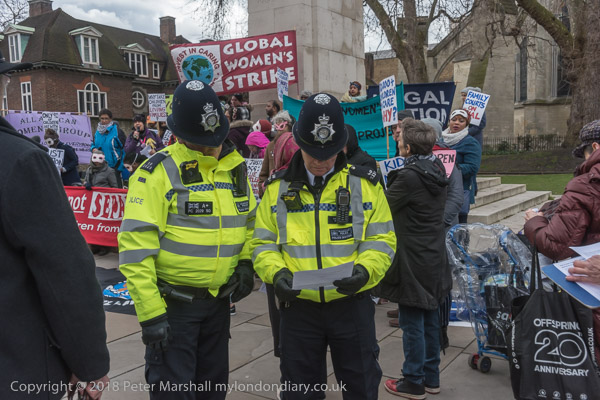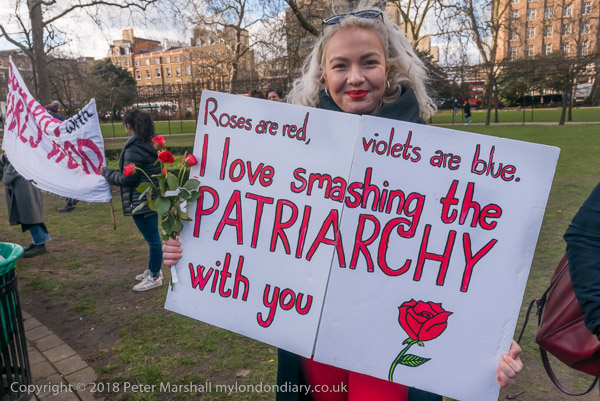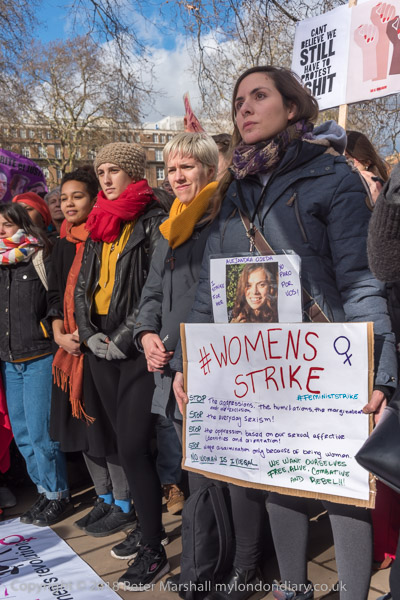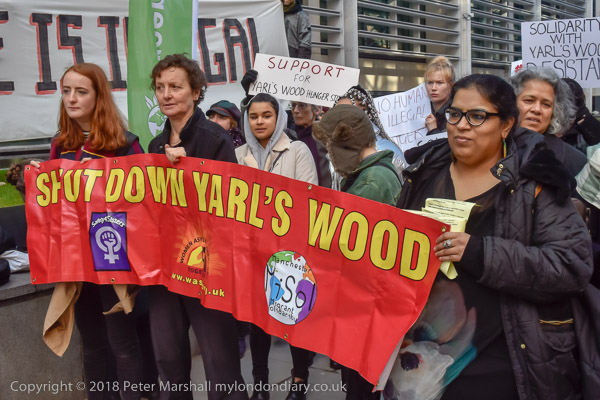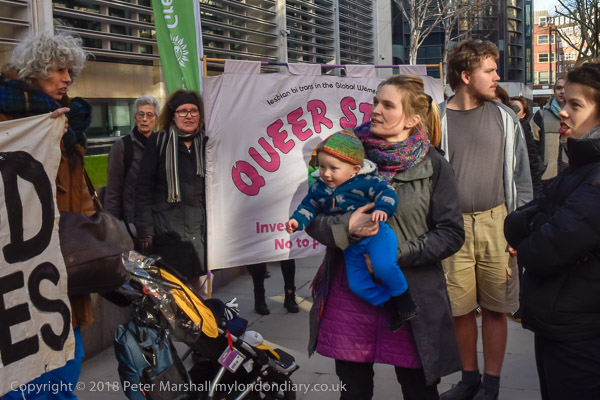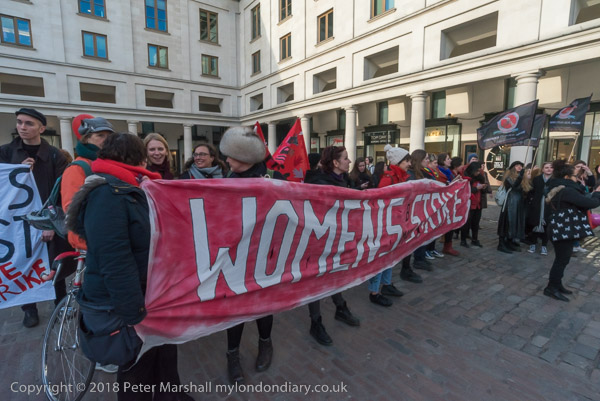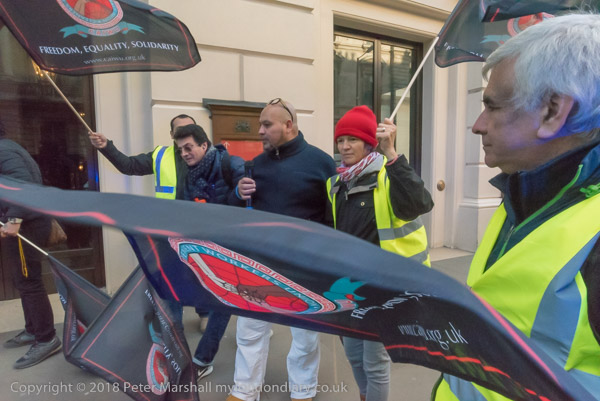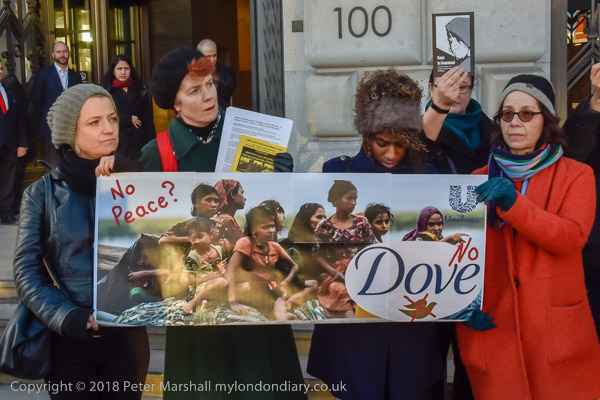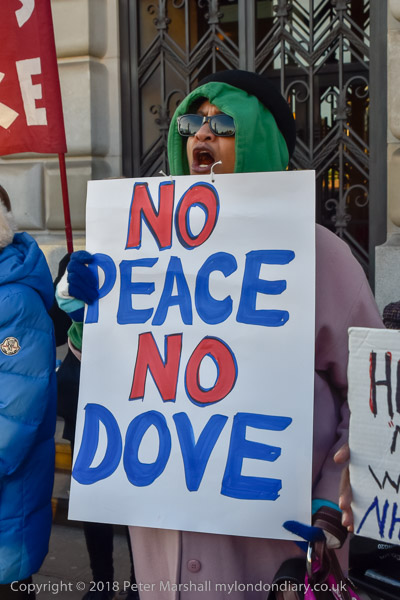Disabled Protest Remploy Closures and Atos Deaths: On a wet Wednesday 29th August 2012, the opening day of the London 2012 Paralympic Games, I photographed two protests by disabled people. At Stratford, close to the Olympic site, Remploy workers and supporters protested at the closure the previous week of 27 Remploy factories which had employed disabled workers, and in Central London DPAC and other disabled activists took a coffin to the offices of Paralympic sponsor Atos, responsible for carrying out fitness to work tests which have driven many disabled people to suicide.
Remploy Protest at Stratford Station
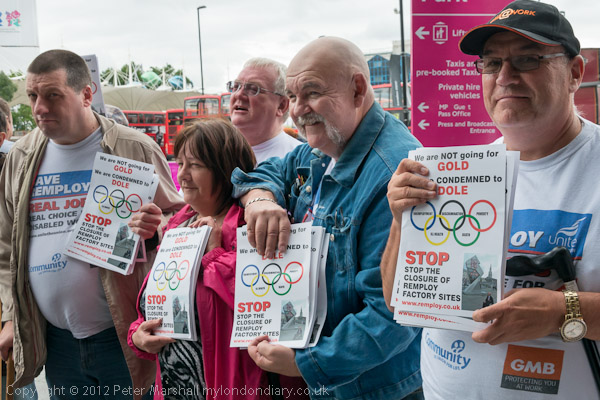
Remploy, then the Disabled Person’s Employment Corporation, opened its first factory in 1946 to provide jobs for men and women who had been injured fighting for their country in the Second World War – just the kind of ex-servicemen who now make up a significant proportion of our Paralympic Team GB.
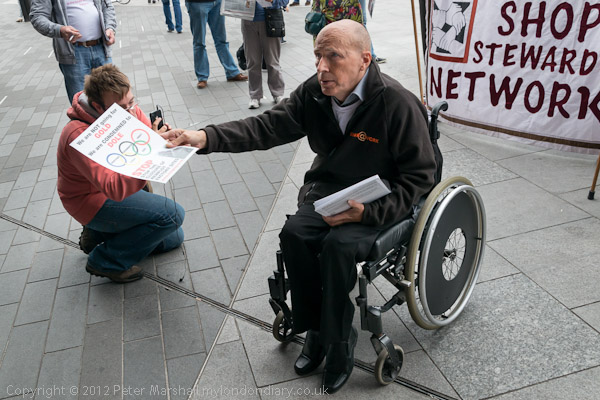
Remploy made it possible for disabled people to do useful and productive work including producing printed circuit boards and electrical assemblies, recycling used computers and much more. They gave disabled workers and those with special health conditions who would otherwise be unemployed useful jobs, a decent income and the satisfaction of working with others rather than being isolated in their homes.
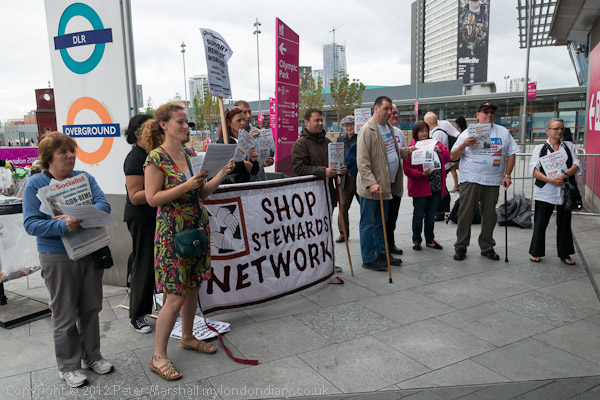
The leaflets being handed out had an Olympic theme, with the message ‘We are NOT going for Gold, We are Condemned to Dole’ and the five Olympic rings were labelled ‘Unemployment, Discrimination, Poverty, Ill Health and Death.’
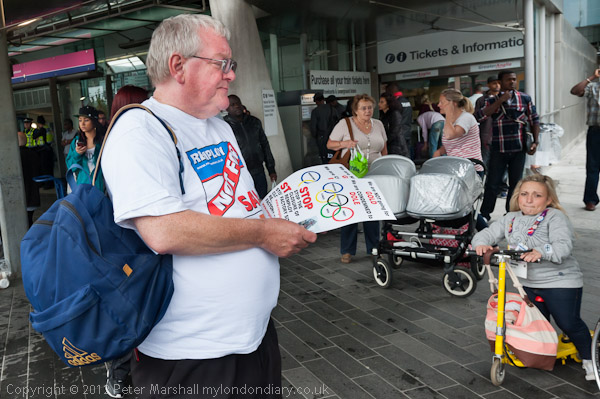
All Remploy factories were closed by the end of 2013, with Remploy continuing only to provide employment placement services for disabled people. In 2015 it was privatised and became owned by US service provider Maximus. They continue to use the Remploy name in Scotland.
Disabled Pay Respect to Atos Victims – Triton Sq
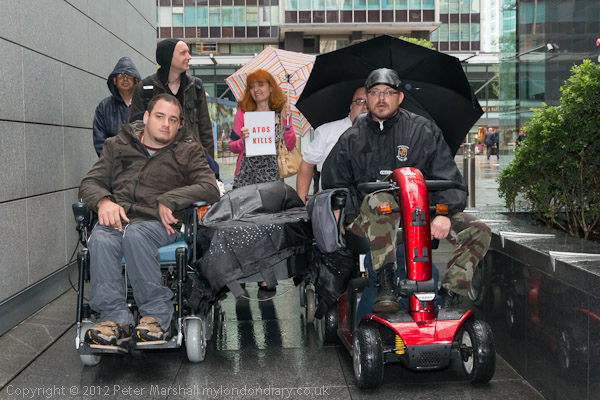
Disabled People Against Cuts (DPAC) were holding a national week of protests around the country against Paralympics sponsor Atos, whose computer based ‘fitness for work’ tests have led to stress, hardship deaths and suicides among the disabled.
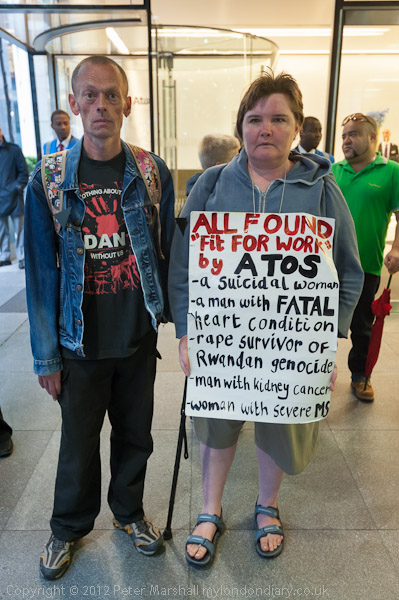
I photographed their Opening Ceremony for the Atos Games on Monday and also the closing of the week on Friday when they again came to the Atos offices in Triton Square for a closing ceremony and then went on to occupy the foyer at the Work & Pensions ministry.

On the Wednesday 29th August I met the protesters in a café on Triton Square on Euston Road where they were meeting in preparation for a vigil to remember those who have died as a result of the deliberately unfair Work Capability Assessments carried out by Paralympic sponsor Atos, and to deliver a coffin on to them on the day the Paralympic Games was opening.
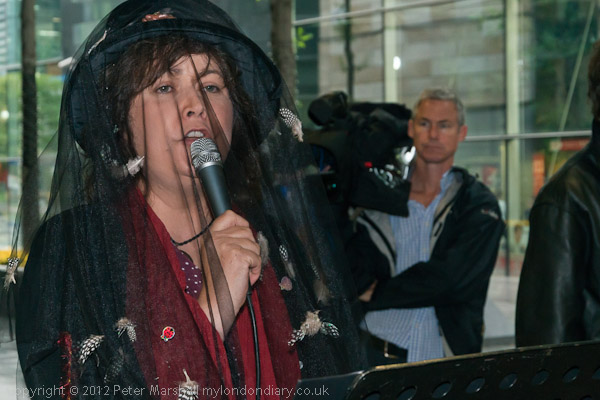
As we were told, Atos was delivering “a relentless health and disability assessment regime which has been used to slash vital benefits from hundred of thousands of sick and disabled people” with assessors told they have to reach strict targets in failing the great majority of claimants, which led them to often deliberately misinterpret the claimants responses and misrepresent their medical conditions.
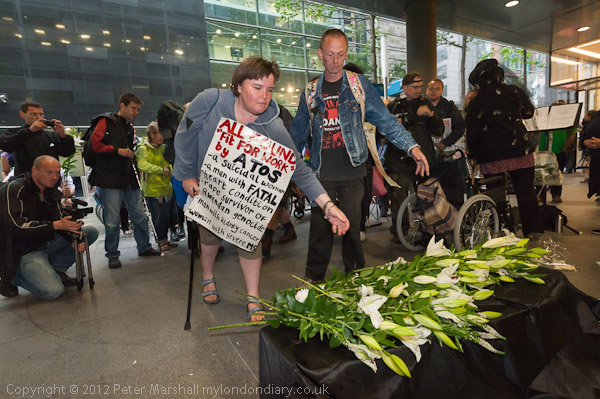
“The was a solemn and moving reminder of the scandal of the work capability assessments and the terrible effect they are having on the disabled. Many are losing the allowances that enable them to travel to work, others housing benefits, and are being told they are fit to work when patently they are unable to do so.”
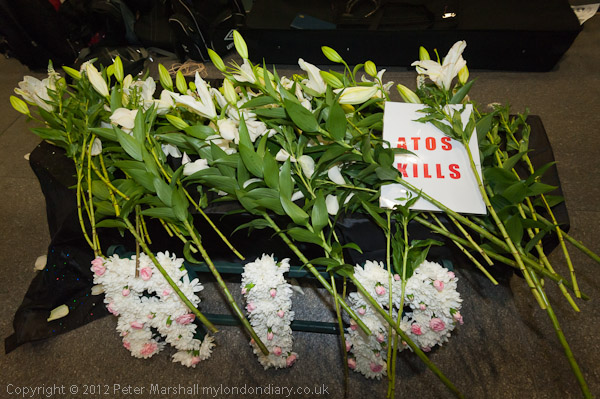
And as I commented in 2012: “It really is a cruel paradox that at a time when the nation is celebrating the great achievements of disabled people in the sporting world, our government is trying to reverse the moves toward equality of treatment of disabled people, and that the company that is trying to take the credit for sponsoring the Paralympics is profiting from contracts to dishonestly deny benefits to the disabled who need them.”
More at Disabled Pay Respect to Atos Victims.
Flickr – Facebook – My London Diary – Hull Photos – Lea Valley – Paris
London’s Industrial Heritage – London Photos
All photographs on this page are copyright © Peter Marshall.
Contact me to buy prints or licence to reproduce.







